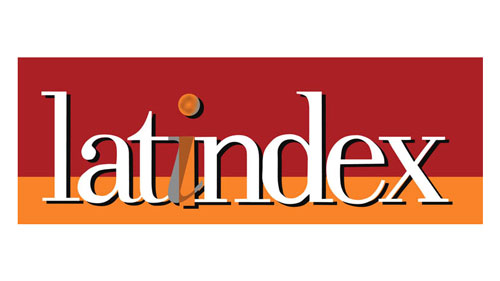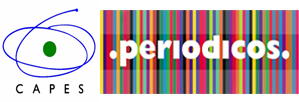Reader roles, Register and Scaffolding: a set of ideas for English teaching in tertiary education
DOI:
https://doi.org/10.26512/rhla.v23i1.53699Keywords:
English language teaching, Discourse, Reading, ScaffoldingAbstract
The purpose of this text is to report the process of developing mediation resources for reading practices and discursive analysis for a course on Discourse, taught, in English, to undergraduate student teachers of English and Portuguese at a federal university in Southeastern Brazil. This process was developed based on the Four Resources Model (reader roles) by Luke and Freebody (1990); in the Theory of Register of Systemic-Functional Linguistics, according to Martin and Rose (2007); and in the pedagogical approach of Scaffolding, according to Gibbons (2015) and Hammond (2021). These bases were used as methodological tools for planning and preparing teaching materials for use in the discipline. The result of the experience was the design of a modular course plan in terms of reader roles, the sequencing and didactic transposition of the contents of the program based on aspects of the context of classroom language use, applied for pedagogical purposes.
Downloads
References
ANDREWS, S. Teacher language awareness. Cambridge, UK: Cambridge University Press, 2007.
AUSTIN, J. How to do things with words. Oxford, UK: Clarendon Press, 1962.
BIRNER, B. S. Pragmatics. Oxford, UK: Oxford University Press, 2021.
BRASIL. Ministério da Educação. Parecer CNE/CP no 492/2011, 03 de abril. Diretrizes Curriculares Nacionais dos cursos de Filosofia, História, Geografia, Serviço Social, Comunicação Social, Ciências Sociais, Letras, Biblioteconomia, Arquivologia e Museologia. Diário Oficial da União, Brasília-DF, 9 jul. 2001, Seção 1e, p. 50.
BROWN, G.; YULE, G. Discourse Analysis. Cambridge, UK: Cambridge University Press, 2012.
BURTON, G. Presenting: deliver presentations with confidence. London: Collins, 2013.
BUTT, D. et al. Using functional grammar: an explorer’s guide. Sydney, AU: Macquarie University, 1996.
EGGINS, S. An Introduction to Systemic Functional Linguistics. London: Printer, 1994.
GIBBONS, P. Reading in a second language and culture: barriers and bridges. In: _______. Scaffolding language, scaffolding learning: teaching English language learners in the mainstream classroom. Portsmouth, UK: Heinemann, 2015. p. 135-181.
HALLIDAY, M. A. K. An introduction to functional grammar. London: Edward Arnold, 1985.
HAMMOND, J. Scaffolding in EAL/D Education. In: HARPER, H.; FEEZ, S. (Ed.). An EAL/D Handbook. Sydney, AU: PETAA, 2021. p. 75-81.
HUMPHREY, S.; DROGA, L. Getting started with functional grammar. Berry, AU: Target Texts. 2002.
JOHNSTONE, B. Discourse Analysis. Oxford, UK: Wiley Blackwell, 2018.
LUKE, A. Critical literacy, school improvement, and the four resources model. In: ALBERS, P. (Ed.). Global conversations in literacy research. New York: Routledge, 2017. p. 1-13.
LUKE, A.; FREEBODY, P. “Literacies” programs: debate and demands in cultural context. Prospect, v. 5, n. 3, p. 7-16, 1990.
MCCARTHY, M.; CARTER, R. Language as discourse: perspectives for language teaching. London: Longman, 1994.
MARTIN, J. R.; ROSE, D. Working with discourse: meaning beyond the clause. 2nd ed. London: Continuum, 2007.
MARTIN, J. R.; WHITE, P. R. R. The language of evaluation: appraisal in English. New York: Palgrave/Macmillan, 2005.
PARROTT, M. Grammar for English language teachers. Cambridge, UK: Cambridge University Press, 2010.
POYNTON, C. Language and gender: making the difference. Oxford, UK: Oxford University Press, 1989.
RAVELLI, L. J. Museum texts. London/New York: Taylor and Francis, 2006.
REYES, I.; MOLL, L. C. Bilingual and biliterate practices at home and school. In: SPOLSKY, B.; HULT, F. M. (Ed.). The handbook of educational linguistics Malden, MA/Oxford, UK: Blackwell Publishing, 2010. p. 147-160.
SCHERER, A. P. R.; WOLFF, C. L. Consciência linguística na escola: experiências e vivências na sala de aula e na formação de professores. Curitiba: Appris. 2021.
SCHLEPPEGRELL, M. J. Making meaning in science and history. In: ______. The language of schooling. New Jersey: Lawrence Erlbaum Associates, 2008. p. 114-136.
SEARLE, J. Speech Acts: an essay in the philosophy of language. Cambridge, UK: Cambridge University Press, 1969.
STRYKER, S. B.; LEAVER, B. L. Content-based instruction: from theory to practice. In: _____. (Ed.). Content-based instruction in foreign language education: models and methods. Washington, DC: Georgetown University Press, 1997. p. 2-28.
THORNBURY, S. About language: tasks for teachers of English. 2nd ed. Cambridge: Cambridge University Press, 2017.
VYGOTSKY, L. Thought and language. Cambridge, MA: Harvard University Press, 1986.
WIDDOWSON, H. Language Teaching: defining the subject. In: TRAPPES-LOMAX, H.; FERGUSON, G. (Ed.). Language in language teacher education. Amsterdam: John Benjamins, 2002. p. 67-81.
WOOD, D.; BRUNER, J. S.; ROSS, G. The role of tutoring in problem solving. Journal of Child Psychology and Psychiatry, v. 17, p. 89-100, 1976.
WRIGHT, T. Doing Language Awareness: Issues for Language Study in Language Teacher Education. In: TRAPPES-LOMAX, H.; FERGUSON, G. (Ed.). Language in language teacher education. Amsterdam: John Benjamins, 2002. p. 113-130.
Downloads
Published
How to Cite
Issue
Section
License
Copyright (c) 2024 Revista Horizontes de Linguistica Aplicada

This work is licensed under a Creative Commons Attribution-NonCommercial-NoDerivatives 4.0 International License.
Articles published by the Journal Horizontes de Linguística Aplicada are licensed under a Creative Commons Attribution-NonCommercial-NoDerivatives 4.0 International License.
By publishing in Horizontes de Linguística Aplicada, authors agree to the transfer of economic copyright to the journal. Authors retain their moral rights, including the right to be recognized as the creators of the work.
Authors and readers are free to:
Share — copy and redistribute the material in any medium or format
Under the following terms:
- Attribution — You must give appropriate credit , provide a link to the license, and indicate if changes were made . You may do so in any reasonable manner, but not in any way that suggests the licensor endorses you or your use.
- NonCommercial — You may not use the material for commercial purposes .
- NoDerivatives — If you remix, transform, or build upon the material, you may not distribute the modified material.
- No additional restrictions — You may not apply legal terms or technological measures that legally restrict others from doing anything the license permits.





